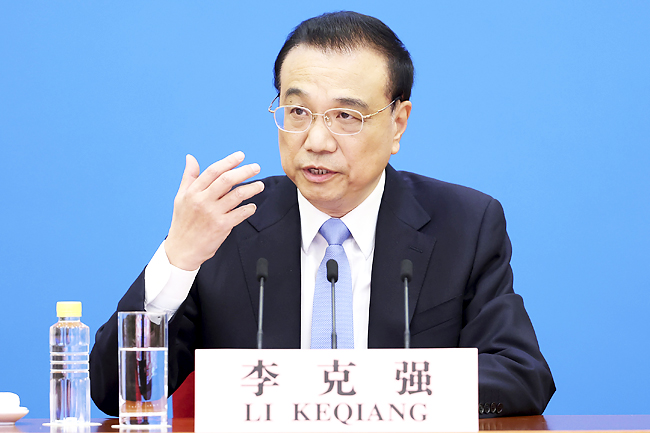BEIJING (AP) – China’s government hopes to generate as many as 13 million new jobs this year to help reverse a painful economic slowdown, the country’s number two leader said yesterday.
Premier Li Keqiang promised “pro-job policies” including tax and fee cuts totaling CNY2.5 trillion (USD400 billion) for businesses, especially small entrepreneurs.
Job losses spiked after economic growth slid to four per cent over a year earlier in the final quarter of 2021, down from the full year’s 8.1 per cent expansion. That followed a plunge in construction after Beijing tightened controls on debt in its vast real estate industry, adding to strains from the coronavirus pandemic and weak export demand.
China has been hit this month by higher energy costs after Russia’s attack on Ukraine caused global oil prices to soar.
“China aims to create 11 million – or preferably 13 million – urban jobs in 2022,” Li said at a news conference after the closing of the annual meeting of China’s legislature.
Li also confirmed he will step down when his second five-year term ends next year. That is in line with ruling party tradition since the 1990s of having the leadership hand over power to a younger generation once a decade. “This is the final year I will be premier,” Li said.
Li called on Washington to repeal tariffs hikes on Chinese goods imposed in a fight with Beijing over its technology ambitions but gave no indication of possible concessions or other initiatives to resolve the conflict.

Trade envoys of the two governments have yet to meet since President Joe Biden took office in January 2021. They have talked by phone but announced no plans for face-to-face talks or changes in their official stances.
Li said Chinese business leaders he talked with support tax cuts as the quickest way to generate jobs instead of government-led investment or handing out vouchers to households to boost consumer spending.
“We need to rely on market-oriented avenues and means to resolve issues related to employment,” Li said. Economic growth tumbled last year after Beijing tightened control on surging debt in the real estate industry, which Chinese leaders said is dangerously high. That triggered a slump in housing sales and construction, important economic engines.
Forecasters expect activity to weaken further before rebounding in mid-year. That is due in part to Beijing’s desire to rely on its traditional tool of encouraging real estate investment, which might push up debt and housing costs.
The ruling party earlier announced an annual economic growth target of 5.5 per cent. That was the weakest goal since the 1990s and would be a marked decline from last year’s 8.1-per-cent growth.
Economists said achieving even that modest target will require additional government stimulus. Li earlier announced plans to inject money into the economy through higher spending on public works but said Beijing wants to restrain its budget deficit.
Li warned global conditions are “very challenging” after saying earlier that hitting Beijing’s growth target will require “arduous efforts”.
The week-long meeting of the 3,000-plus members of the National People’s Congress took place against a backdrop of Russia’s war on Ukraine and the COVID-19 surge.
This week, China has seen the number of domestic COVID-19 cases shoot to highs that are small compared to much of the world but have been unseen in China since the original outbreak two years ago. Yesterday, 397 cases of local transmission were reported nationwide.



















































